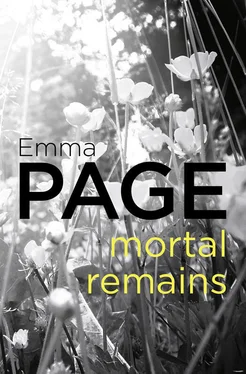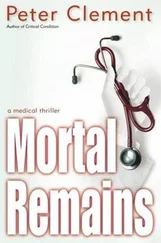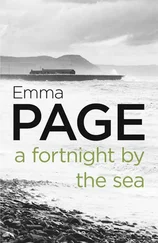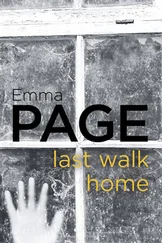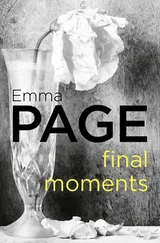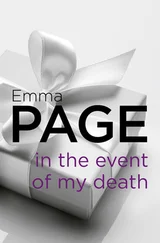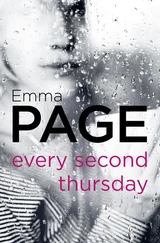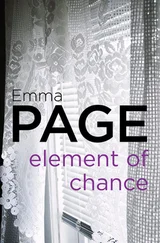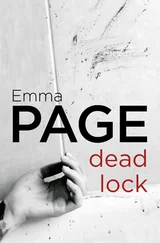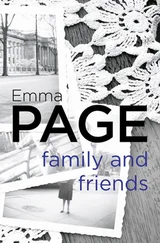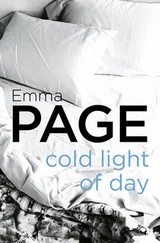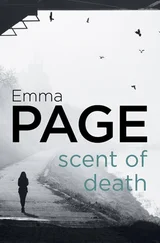
Harper An imprint of HarperCollins Publishers 1 London Bridge Street London SE1 9GF
www.harpercollins.co.uk
First published in Great Britain in 1992 by Collins Crime
Copyright © Emma Page 1992
Emma Page asserts the moral right to be identified as the author of this work
A catalogue copy of this book is available from the British Library.
This novel is entirely a work of fiction. The names, characters and incidents portrayed in it are the work of the author’s imagination. Any resemblance to actual persons, living or dead, events or localities is entirely coincidental.
All rights reserved under International and Pan-American Copyright Conventions. By payment of the required fees, you have been granted the nonexclusive, nontransferable right to access and read the text of this e-book on-screen. No part of this text may be reproduced, transmitted, downloaded, decompiled, reverse-engineered, or stored in or introduced into any information storage and retrieval system, in any form or by any means, whether electronic or mechanical, now known or hereinafter invented, without the express written permission of HarperCollins e-books.
HarperCollins Publishers has made every reasonable effort to ensure that any picture content and written content in this ebook has been included or removed in accordance with the contractual and technological constraints in operation at the time of publication.
Source ISBN: 9780008171780
Ebook Edition © MARCH 2016 ISBN: 9780008171797
Version [2016-02-19]
For B.D., G.G., J.C., et al,
For all the happy hours
Cover
Title Page
Copyright
Dedication
Chapter 1
Chapter 2
Chapter 3
Chapter 4
Chapter 5
Chapter 6
Chapter 7
Chapter 8
Chapter 9
Chapter 10
Chapter 11
Chapter 12
Chapter 13
Chapter 14
Chapter 15
Chapter 16
Chapter 17
Chapter 18
Chapter 19
Chapter 20
Chapter 21
Chapter 22
Chapter 23
Chapter 24
Chapter 25
Chapter 26
Chapter 27
Chapter 28
Chapter 29
About the Author
By Emma Page
About the Publisher
All summer long the local children played on Whitethorn Common, a sizeable tract of land on the edge of Cannonbridge. The common didn’t present a flat, exposed terrain but a landscape of diversity and unexpectedness, swelling into hillocks, dipping into hollows; secluded spots, open spaces, trees and shrubs, smooth stretches of turf.
Now, in the caressing warmth of this golden Tuesday evening in September, the shadows had lengthened by eight o’clock. The blackberrying youngsters were departing with their pickings, the pensioners heading for home and television.
A young couple still strolled over the emerald slopes, their arms around each other. The girl, Jill Lingard, was nineteen years old, pretty enough in an everyday fashion, an air of robust common sense. Her boyfriend, Norman Griffin, seven years older, was a virile-looking young man with a stubborn set to his jaw.
They paused from time to time to survey one or other of the half-dozen houses, of varying sizes, dates and styles, dotted about the common, each in its own garden. They climbed a grass-covered eminence and stood looking down. ‘That’s the kind of house I’d like one day.’ Jill nodded in the direction of a substantial late-Victorian dwelling standing on gently rising ground a little distance ahead. The name on one of the tall gate pillars read: Fairbourne.
The house fronted the common, its large garden screened on three sides and a good part of the fourth by trees and shrubs.
‘That’s the sort of place to bring a family up,’ Jill added. ‘It’s got character. And space.’
‘We could never afford anything like that on what I earn,’ Norman said. He was a driver for Mansell’s, a local building firm. ‘There’s only one way it might be possible and that would take luck and years of hard work. Start off small and trade up. Find some run-down property dirt-cheap, work on it, sell it. Find another, work on it, sell it. The same again. And again. The real difficulty would be getting the money to buy the first property. We’d be lucky to get any mortgage at all on something like that. And we’d need cash for materials, all the way along.’
She looked earnestly up at him. ‘If we did find an old place cheap, do you think Tom Mansell might lend us the money to buy it?’ Tom Mansell was his boss. ‘You’ve always got on well with him. We’d pay him back every month, exactly the same as a building society, we’d have it all properly drawn up.’
He shook his head. ‘Mansell would never put up good money for us to buy some clapped-out property, he’d tell us to buy one of his starter homes. That would make a lot more sense. We could get the maximum mortgage on one of those, with both of us working.’
She pulled a face. ‘I’d hate one of those poky little boxes.’
He gave her a considering look. ‘I notice you don’t mention your grandfather. If we were trying to borrow from anyone, surely he’d be the obvious person. I wouldn’t mind betting he’s worth a lot more than he ever lets on.’
It was Jill’s turn to shake her head. ‘We’d be wasting our time. Granddad wouldn’t lend Gareth a penny when he was starting up.’ Gareth was her brother, several years older, married, with two small children; he lived some distance away. In spite of the age difference he and Jill had always been close. A few years ago Gareth had set up with another young man in the business of contract gardening. In the event he had managed without help from his grandfather; his wife’s parents had come up with the necessary backing.
‘Wouldn’t do any harm to ask the old man,’ Norman persisted. ‘He’s very fond of you. Catch him in a good mood, he might surprise you.’
She shook her head with finality. ‘He’d never do it. You know what he’d say: “If you want something you must work for it, save for it, the same as I had to do.”’ But she wasn’t defeated yet. ‘What about your mother? Has she got anything she might lend us?’
He laughed. ‘You can forget my mother. She’s got a few pounds in the post office and that’s about it.’
Jill’s face broke into a rapturous smile. It had just dawned on her that here they were, discussing properties, loans, mortgages, as if they were definitely intending to get married. They had been going out together for some months – on a strictly so far and no farther basis, by Jill’s express diktat. Norman had never mentioned marriage and with Jill it would have to be marriage, she could never settle for the casual arrangement of simply setting up house together, seeing how things went from there. Only the full commitment, the traditional set-up, would do for her: a settled home for children, security, stability. Norman was well aware of her views; if he was talking about buying a house together, then he was talking marriage.
As she savoured her moment of realization a girl of about ten years old came running up the grassy incline, a spaniel frisking at her heels. She was a rosy-cheeked child, chubby-faced and bright-eyed, her long fair hair taken back in a plait tied with red ribbon. She gave Jill a warm smile.
‘Not another dog!’ Jill exclaimed, laughing. ‘It’s a different animal pretty well every time I see you.’ She often came across the girl about the common, exercising a pet belonging to some relative or neighbour. Jill reached down to pat the spaniel; she began to chat idly to the girl.
Читать дальше
